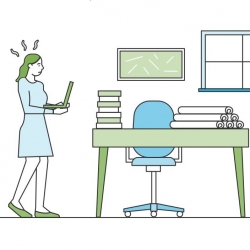To provide the best experiences, we use technologies like cookies to store and/or access device information. Consenting to these technologies will allow us to process data such as browsing behaviour or unique IDs on this site. Not consenting or withdrawing consent, may adversely affect certain features and functions.
The technical storage or access is strictly necessary for the legitimate purpose of enabling the use of a specific service explicitly requested by the subscriber or user, or for the sole purpose of carrying out the transmission of a communication over an electronic communications network.
The technical storage or access is necessary for the legitimate purpose of storing preferences that are not requested by the subscriber or user.
The technical storage or access that is used exclusively for statistical purposes.
The technical storage or access that is used exclusively for anonymous statistical purposes. Without a subpoena, voluntary compliance on the part of your Internet Service Provider, or additional records from a third party, information stored or retrieved for this purpose alone cannot usually be used to identify you.
The technical storage or access is required to create user profiles to send advertising, or to track the user on a website or across several websites for similar marketing purposes.
 As the cost of living continues to spiral, a new report shows more than half of gig economy workers in the UK are paid below the minimum wage. The study, led by the University of Bristol, found 52 percent of gig workers doing jobs ranging from data entry to food delivery were earning below the minimum wage. On average respondents were earning £8.97 per hour – around 15 percent below the current UK minimum wage, which rose to £10.42 this month. More than three-quarters (76 percent) of survey respondents also experienced work-related insecurity and anxiety. More →
As the cost of living continues to spiral, a new report shows more than half of gig economy workers in the UK are paid below the minimum wage. The study, led by the University of Bristol, found 52 percent of gig workers doing jobs ranging from data entry to food delivery were earning below the minimum wage. On average respondents were earning £8.97 per hour – around 15 percent below the current UK minimum wage, which rose to £10.42 this month. More than three-quarters (76 percent) of survey respondents also experienced work-related insecurity and anxiety. More →






 A significant majority (85 percent) of employees feel like they are just a cog in the machinery of their organisation and 43 percent have no idea how their performance contributes to business success, according to a new survey of employee experience and expectations. According to the
A significant majority (85 percent) of employees feel like they are just a cog in the machinery of their organisation and 43 percent have no idea how their performance contributes to business success, according to a new survey of employee experience and expectations. According to the 




 According to a new poll from
According to a new poll from 




















December 22, 2022
How businesses can support employee wellbeing over a difficult festive period
by Louise Aston • Comment, Wellbeing